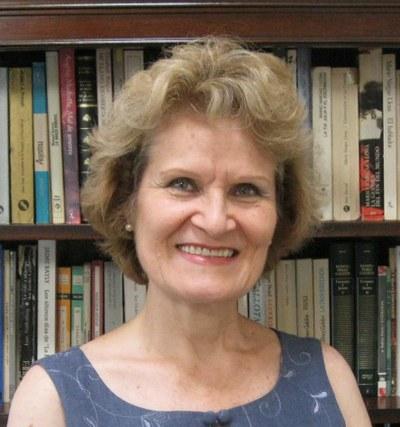Research
My current research interests are focused on the blood stages of falciparum malaria. Our discovery that the invasion efficiency of falciparum parasites was markedly reduced by red cell dehydration (Blood,105:4853-4860, 2005) proved relevant to the understanding of the mechanisms by which inherited haemolytic anaemias with gene pools sustained in malaria-endemic regions, protect individuals against severe malaria. In many of these anaemias, the presence of dehydrated, dense subpopulations of red cells in the circulation prevents the development of high parasitaemias, a pre-condition for disease severity. Our search for possible mechanisms of density-protection focused attention on an elusive pre-invasion stage of parasite-red cell interaction, during which falciparum merozoites align apically, ready to penetrate and infect red cells (Trends Parasitol. 23:481-48, 2007). This is the least understood stage of the invasion process. Elucidation of its mechanism may pave the way to novel malaria therapies. Investigation of the pre-invasion stage poses formidable technical challenges which we are currently trying to overcome in a multidisciplinary collaboration with colleagues from the Department of Physiology, Development and Neuroscience, the Cavendish Laboratory and the Wellcome Trust Sanger Institute (Biophys. J. 107:846-853, 2014).
Collaborators
Dr Virgilio Lew, Department of Physiology, Development and Neuroscience, University of Cambridge
Dr Pietro Cicuta, Cavendish Laboratory, University of Cambridge
Dr Julian Rayner, Wellcome Trust Sanger Institute, Hinxton, Cambridge
Publications
Lew VL, Tiffert T, (2015), Volume control in Plasmodium falciparum-infected red blood cells, Encyclopedia of Malaria, Springer, DOI 10, 1007/978-1-4614-8757-9_27-1
Crick AJ, Theron M, Tiffert T, Lew VL, Cicuta P, Rayner JC, (2014), Quantitation of malaria parasite-erythrocyte cell-cell interactions using optical tweezers, Biophys. J, 107:846-853
Tiffert T, Lew VL, (2014), Dynamic morphology and cytoskeletal protein changes during spontaneous inside-out vesiculation of red blood cell membranes, Pflugers Arch - Eur J Physiol, DOI 10.1007/s00424-014-1483-5
Crick AJ, Tiffert T, Shah SM, Kotar J, Lew VL, Cicuta P, (2013), An automated live imaging platform for studying merozoite egress-invasion in malaria cultures, Biophys. J, 104:997-1005
Tiffert T, Lew VL, (2011), Elevated intracellular Ca2+ reveals a functional membrane nucleotide pool in intact human red blood cells, J. Gen. Physiol, 138(4): 381-391
Mauritz JMA, Seear R, Esposito A, Kaminski CF, Skepper JN, Warley A, Lew VL, Tiffert T, (2011), X-ray microanalisis investigation of the changes in Na, K, and haemoglobin concentration in Plasmodium falciparum-infected red blood cells, Biophys. J, 100:1438-1445
Esposito A, Choimet J-B, Skepper JN, Mauritz JMA, Lew VL, Kaminski CF, Tiffert T, (2010), Quantitative imaging of human red blood cells infected with Plasmodium falciparum, Biophys. J, 99:1-8
Mauritz JMA, Esposito A, Ginsburg H, Kaminski CF, Tiffert T, Lew VL, (2009), The homeostasis of Plasmodium falciparum-infected red blood cells, PLoS Computational Biology, 5(4):e1000339
Esposito A, Tiffert T, Mauritz JMA, Schlachter S, Bannister LH, Kaminski CF, Lew VL, (2008), FRET imaging of hemoglobin concentration in Plasmodium falciparum-infected red cells, PLoS ONE, 3(11):e3780
Lew VL, Tiffert T, (2007), Is invasion efficiency in malaria controlled by pre-invasion events?, Trends Parasitol, 23:481-484
Tiffert T, Daw N, Etzion Z, Bookchin RM, Lew VL, (2007), Age-decline in the activity of the Ca2+-sensitive K+ channel of human red blood cells, J. Gen. Physiol, 129:429-436
Tiffert T, Lew VL, Ginsburg H, Krugliak M, Croisille L, Mohandas N, (2005), The hydration state of human red blood cells and their susceptibility to invasion by Plasmodium falciparum, Blood, 105:4853-4860
Lew VL, Tiffert T, Ginsburg H, (2003), Excess hemoglobin digestion and the osmotic stability of Plasmodium falciparum-infected red blood cells, Blood, 101:4189-4194
Teaching and Supervisions
Course organiser: IA MVST Histology


